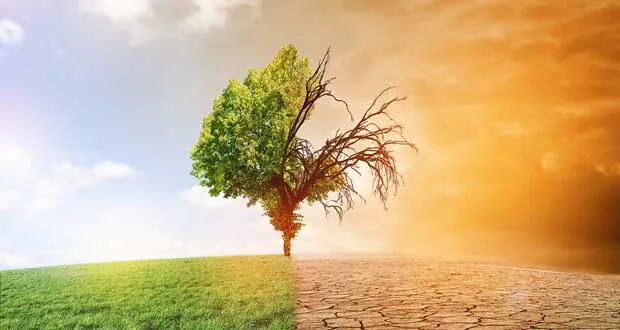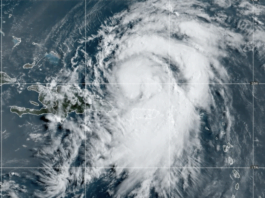Climate Crisis Champions: Uniting Guardians for Change
Introduction
The climate crisis is undeniably the most urgent challenge of our era, necessitating immediate attention and action from every individual, community, and nation. In this article on “Climate Crisis: Awakening the Guardians of Mother Nature,” we will delve into the critical importance of climate education and explore the roles of individuals, communities, governments, businesses, and climate preparedness in mitigating its effects.
Understanding the Climate Crisis
Climate change, or climate emergency, denotes significant and lasting alterations in the Earth’s climate patterns. These changes are primarily attributed to human activities such as burning fossil fuels, deforestation, and industrial processes. The resulting increase in greenhouse gas emissions traps heat in the atmosphere, leading to global warming and disrupting weather patterns worldwide.
The Impact of Climate Change
Environmental Impacts
Rising temperatures exacerbate the loss of biodiversity, habitat destruction, and extreme weather events, marking a climate emergency. These occurrences encompass hurricanes, droughts, and wildfires. Moreover, the melting of polar ice caps and glaciers intensifies sea-level rise, posing a grave threat to coastal communities and ecosystems.
Social and Economic Consequences
The impacts of the climate emergency reach far beyond the environment, affecting human societies and economies alike. Heatwaves, floods, and storms jeopardize both lives and livelihoods. Additionally, agricultural disruptions compound food security challenges and threaten economic stability.
The Role of Guardians of Mother Nature
Individuals, often referred to as guardians of Mother Nature, play a crucial role in advocating for environmental protection and sustainability amidst the climate emergency. Whether through small lifestyle changes or large-scale activism, these guardians contribute to preserving the planet for future generations.
Sustainable Practices for Individuals
Every individual can make a difference by adopting sustainable habits. These include reducing energy consumption, minimizing waste, and choosing eco-friendly transportation options. Embracing renewable energy sources like solar and wind power further reduces reliance on fossil fuels and mitigates carbon emissions.
Community Efforts and Activism
Communities worldwide are taking proactive measures to combat climate change through local initiatives. These initiatives include community gardens, recycling programs, and conservation projects. Grassroots activism amplifies voices and drives policy changes at the local and national levels, promoting environmental awareness and action.
Corporate Responsibility
Businesses have a significant impact on the environment and society, making corporate responsibility essential in addressing the climate crisis. Adopting sustainable practices, investing in clean technologies, and implementing corporate social responsibility (CSR) initiatives contribute to reducing carbon footprints and fostering sustainable development.
Government Policies and Global Agreements
Governments play a pivotal role in enacting policies and regulations to address climate change. This occurs both domestically and internationally. Key global agreements like the Paris Agreement aim to limit global warming and promote climate resilience through collective action and cooperation among nations.
Innovations and Technological Solutions
Advancements in green technologies and innovations in energy efficiency offer promising solutions to combat climate change. From electric vehicles to smart grids, these technologies contribute to reducing greenhouse gas emissions and promoting sustainable development on a global scale.
Education and Awareness
Educating the public about the science of climate change and its impacts is crucial for climate preparedness. School curricula, public outreach programs, media campaigns, and the efforts of nature protectors raise awareness and empower individuals to take meaningful action against climate change.
Challenges in Tackling Climate Change
Despite growing awareness and efforts to address the climate crisis, significant challenges remain. Political and economic barriers, vested interests in the fossil fuel industry, skepticism about climate science, and the need for climate preparedness pose obstacles to effective climate action.
Success Stories and Positive Outcomes
Amidst the challenges, there are inspiring examples of successful climate initiatives and positive outcomes worldwide. From renewable energy transitions to reforestation projects, these success stories exemplify the power of collective action and innovation in addressing the climate crisis and nurturing nature protectors.
Climate Future Outlook
Looking ahead, the fight against climate change demands sustained commitment and collaboration from all sectors of society. By embracing renewable energy, promoting sustainable practices, advocating for policy changes, and standing as nature protectors, we can build a more resilient and environmentally conscious future for generations to come.
Conclusion
The climate crisis demands urgent action to mitigate its impacts and safeguard the planet for future generations. By awakening the guardians of Mother nature protectors and mobilizing collective efforts at the individual, community, corporate, and governmental levels, we can address the climate crisis and build a more sustainable and resilient world.
FAQs
- What can I do to help fight Climate Crisis?
- Individuals can reduce their carbon footprint by adopting sustainable practices such as conserving energy, minimizing waste, and supporting renewable energy initiatives.
- How do renewable energies contribute to reducing climate change?
- Renewable energy sources like solar and wind power produce clean electricity without emitting greenhouse gases, helping to reduce reliance on fossil fuels and mitigate climate change.
- What are some examples of successful climate initiatives?
- Examples include renewable energy transitions, reforestation projects, and sustainable agriculture practices that contribute to reducing carbon emissions and promoting environmental sustainability.
- Why is corporate responsibility important in addressing the climate crisis?
- Businesses have a significant impact on the environment and society, making corporate responsibility essential in reducing carbon footprints, promoting sustainability, driving positive environmental change, supporting climate education, and fostering climate preparedness.
- How can education influence Climate Crisis mitigation?
- Climate education, also known as climate literacy, raises awareness about the causes and consequences of climate change. It empowers individuals to make informed choices, advocate for policy changes, and take collective action to address the climate crisis.
READ MORE
Whispers of the Earth: Answering the Call for Climate Action




